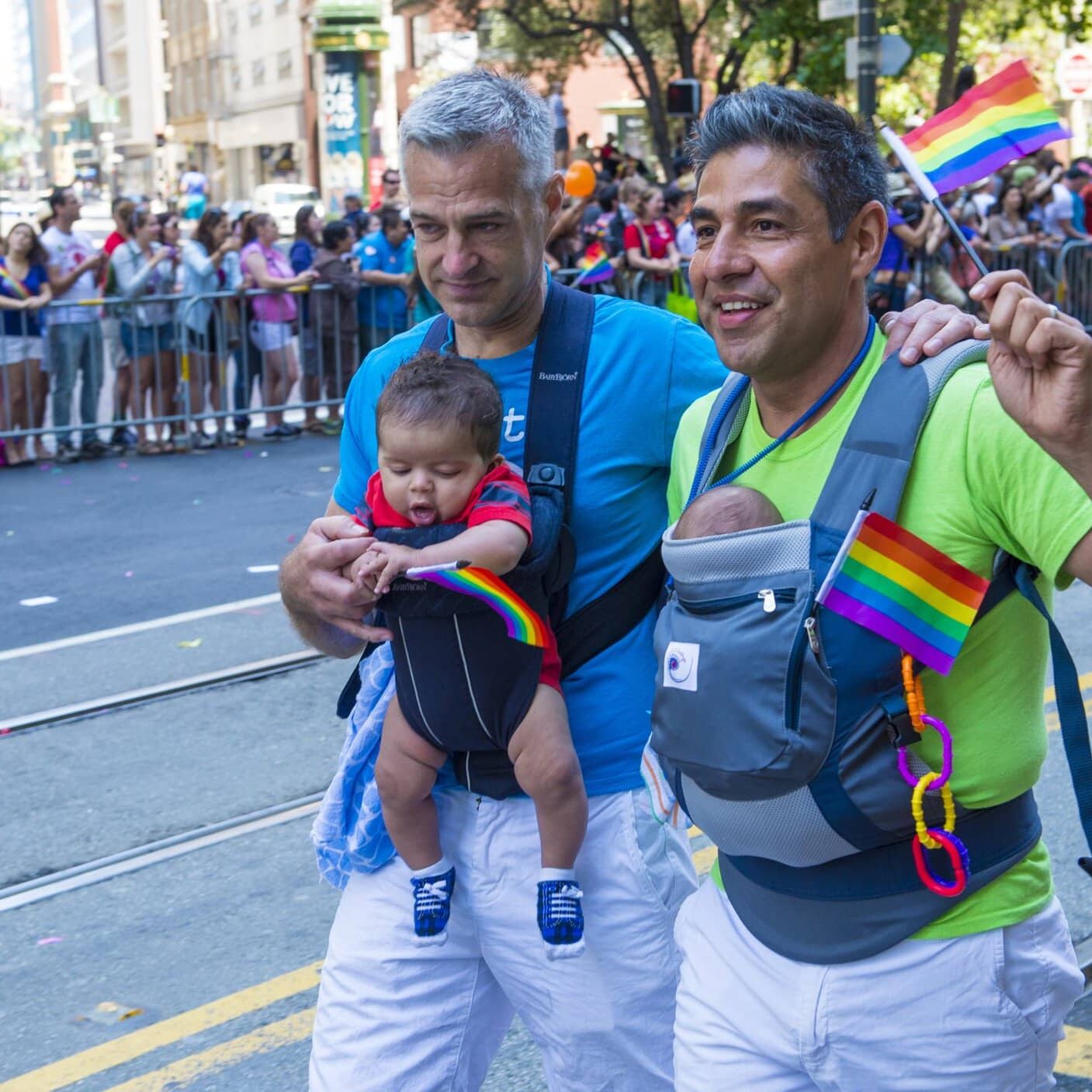Ending Discrimination
In 1982, Wisconsin made history by being the first state to ban discrimination on the basis of sexual orientation. This historic legislation has been protecting lesbian, gay and bisexual Wisconsinites from discrimination at their workplace, in housing, and in public accommodations for forty years. Our state law currently does not provide protections against discrimination based on gender identity or expression. At Fair Wisconsin we believe that it is equally important these protections be extended to protect all people based on their gender identity and expression as well. State of Wisconsin employees and contractors are protected from discrimination based on sexual orientation, gender identity and expression by Governor Evers Executive Order #1.
Currently the cities of Appleton, Cudahy, De Pere, Green Bay, Janesville, La Crosse, Madison, Milwaukee, Oshkosh (partial protections), Sun Prairie, Racine, and Verona provide these protections at the local level, with comprehensive gender-inclusive housing, employment and public accommodations protections against discrimination. In addition, Dane County and Milwaukee County have fair housing protections and personnel policies that prohibit LGBTQ+ discrimination and in 2023 passed trans sanctuary resolutions.
We continue to work to advance local nondiscrimination ordinances, statewide and in targeted communities as a way to increase protections while also educating the public about this issue and to underscore the need for comprehensive state and federal laws.
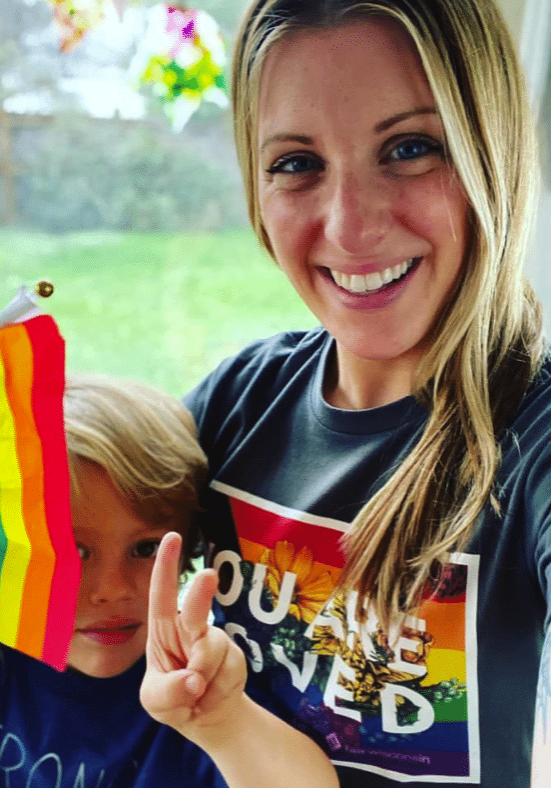
Wisconsin’s Nondiscrimination Laws
You cannot legally be fired, demoted, denied a job, or otherwise treated unequally in your workplace because of your sexual orientation. The law covers all employers, including labor unions, employment agencies, and licensing agencies.
Workplace harassment based on sexual orientation is also illegal. This means, for example, if co-workers harass someone for being gay, supervisors have a duty to try to stop that harassment.
Under Wisconsin law, harassment may include verbal abuse, epithets, vulgar or derogatory language, display of offensive cartoons or materials, mimicry, lewd or offensive gestures, and telling homophobic jokes. The behavior must be more than a few isolated incidents or casual comments. Harassment involves a pattern of abusive and degrading conduct directed against the employee based on sexual orientation that is sufficient to interfere with his or her work or to create an offensive and hostile work environment.
Wisconsin state courts have said that the workplace nondiscrimination law does not prohibit an employer from refusing to provide domestic partner benefits.
It is illegal to be evicted, threatened or intimidated, denied the ability to rent, buy, construct, or finance a home or otherwise be treated unequally in housing because of your sexual orientation. This applies to management companies, landlords, real estate agents, and subsidized housing. This does not apply to roommates in units in which five or fewer people live.
It is illegal to be kicked out of, denied services from, or otherwise treated differently by a place of public accommodation because of your sexual orientation. Wisconsin law considers public accommodations to include places of business or recreation, lodging establishments, credit/financial services, restaurants, taverns, nursing homes, clinics, hospitals, and any other place where accommodations, amusement, goods, or services are available to the general public. Private, nonprofit organizations that provide accommodations, amusement, and goods and services only to their members and members’ guests (for example, country clubs) are not considered public accommodations under state law.
The law also forbids anti-gay harassment in public accommodations, so long as the employees or owners have some degree of control over the harassment. For example, it may be illegal discrimination if a bartender consistently talks with patrons using anti-gay slurs.
Discrimination on the basis of sexual orientation in public accommodations can also include discrimination against same-sex couples who show each other affection in the same way that opposite-sex couples do in the same establishment. For example, you cannot be kicked off a bus or out of a store for holding hands with your partner, or for slow-dancing with your partner in a bar where heterosexual couples also dance together.
According to state statute 118.13 It is illegal to be denied admission to any public school or be denied participation in, be denied the benefits of or be discriminated against in any curricular, extracurricular, pupil services, recreational or other program or activity because of an individuals sexual orientation.
Discrimination includes Stereotyping – attributing behaviors, abilities, interests, values or roles, Pupil harassment – behavior toward pupils which substantially interferes with a pupil’s school performance or creates an intimidating, hostile, or offensive school environment.
While there are no state-wide protections for gender identity or expression, many school districts have added protections for gender identity and expression in their local policies. To find out if your school district has protections for theses policies Click HERE --> https://equalitymapwi.org/category/school-districts/
Expanding Our Laws to Include Gender Identity and Expression
Though our 1982 nondiscrimination law was a landmark victory for equality in Wisconsin and nation-wide, it is hard to believe that in 2024, transgender and non-binary workers still are not protected from discrimination under federal or state law, but it’s true.
Since 1982, current nondiscrimination best practices include protections for transgender and gender non-conforming individuals with the addition of “gender identity and expression” as a protected class.
By modernizing our nondiscrimination policies, Wisconsin will have a new tool to protect our residents from incidences of discrimination. Current laws protecting public safety and nondiscrimination will stay in place; the updates we seek will ensure that all people, including gay and transgender individuals, will be protected from discrimination.
Dozens of states and hundreds of cities across America – including Madison and Milwaukee – have already passed similar fully inclusive nondiscrimination protections and implemented them successfully, with no increase in public safety incidents.
Many successful businesses, large and small, already have fully inclusive nondiscrimination policies in place. These companies know first-hand that such policies contribute to, rather than undermine, their success, competitiveness and growth.
It’s time for Wisconsin law to change so every worker, including those who are gay or transgender, is judged by their performance and their qualifications – nothing more, nothing less. It’s about striking a balance. We can give everyone an equal opportunity to earn a living and hold everyone to the same professional standards.
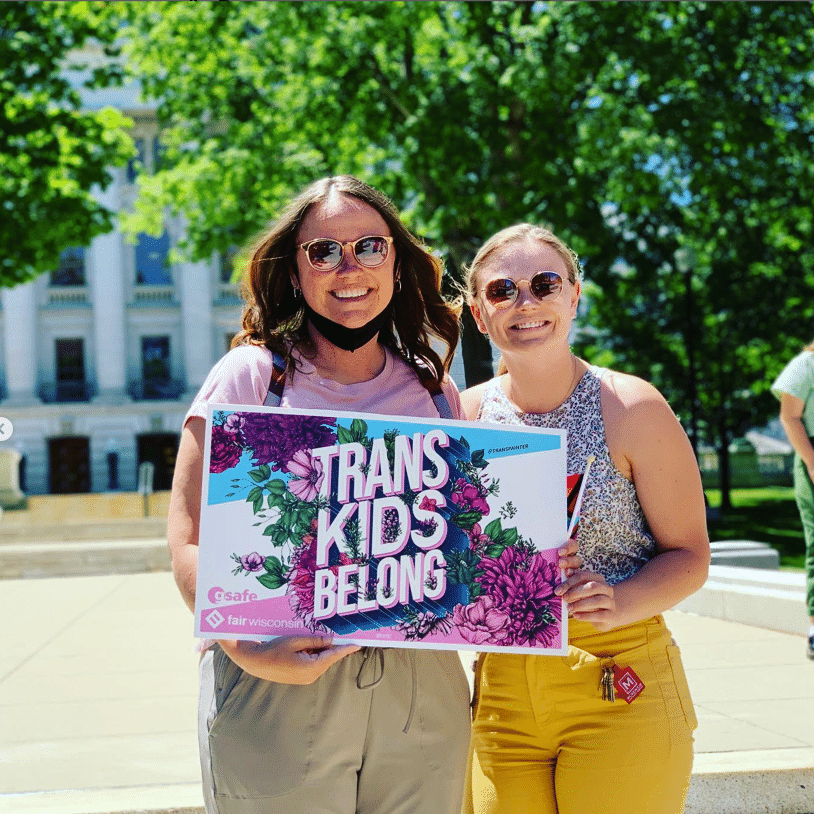
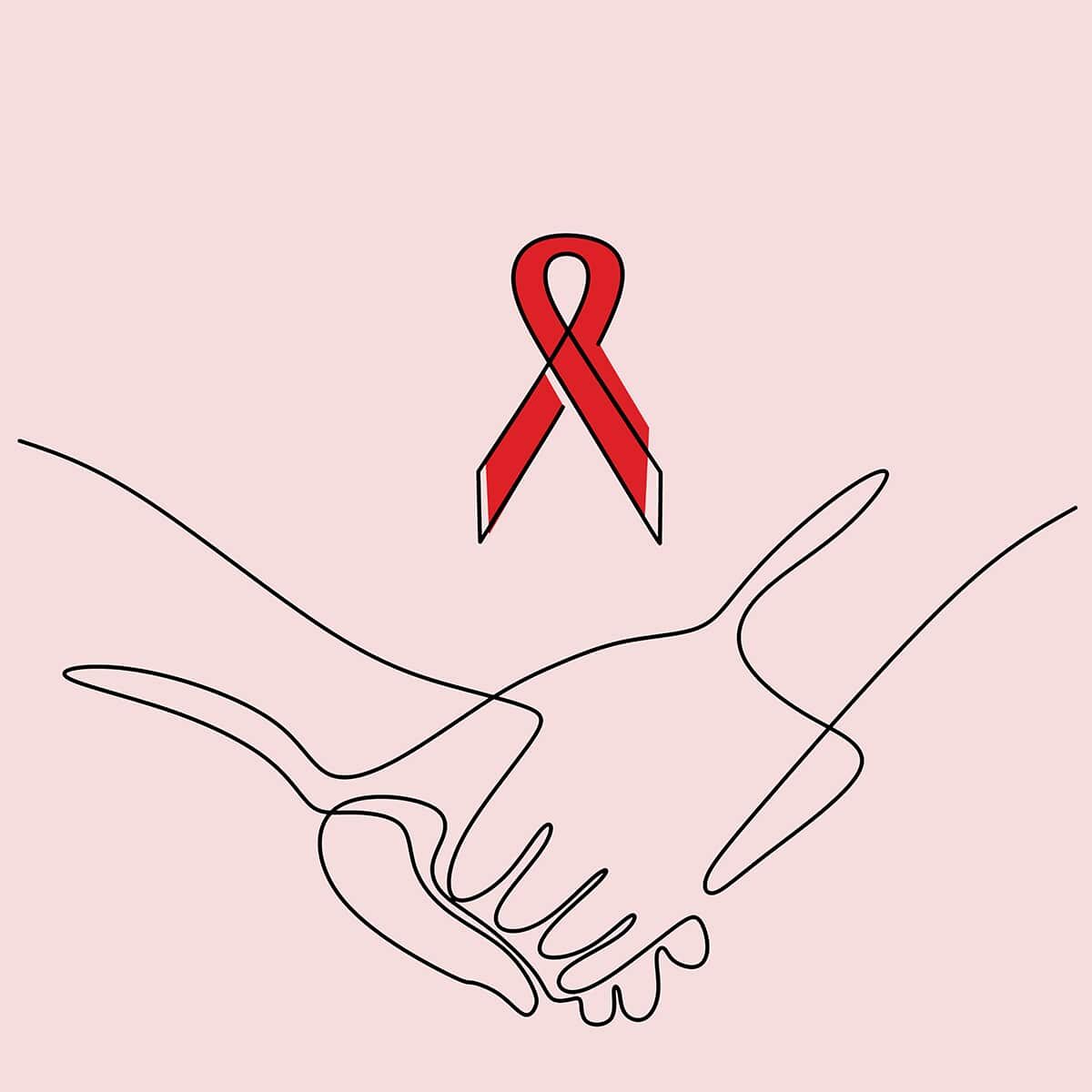
Modernizing Wisconsin's HIV Laws
As part of Fair Wisconsin's work to combat the expansion of our criminal justice system, Fair Wisconsin is working to modernize our states HIV laws and work to decriminalize HIV. HIV Criminalization is the prosecution and imprisonment of people living with HIV for things that are perfectly legal or only minor crimes for people who have not tested positive.
There is no evidence that HIV criminal laws promote public health by increasing disclosure, HIV testing, or safer sex. The laws have had zero impact on rates of HIV diagnosis.
In fact, HIV criminalization may discourage testing and knowledge about an individual’s status. For every 100,000 people in Wisconsin, 134 people are living with HIV. The state resources used to arrest, prosecute and sentence people could be used to educate people on the actual routes, risks and realities of HIV transmission and prevention.
Ending Conversion Therapy
Conversion therapy — also known as “reparative therapy” or “sexual orientation change efforts” — refers to dangerous and discredited practices that attempt to change a person’s LGBTQ+ identity. It isn’t therapy at all: there is no evidence to support that a person’s sexual orientation or gender identity can be changed. Any and all forms of so-called conversion “therapy” are harmful.
Currently 14 cities in Wisconsin have ordinances which ban licensed medical care providers from practicing conversion therapy on minors: Appleton, Cudahy, Eau Claire, Glendale, Kenosha, La Crosse, Madison, Milwaukee, Racine, Sheboygan, Shorewood, Sun Prairie, Superior and West Allis.
Even with these laws in place The Trevor Project found that 15% of LGBTQ youth in Wisconsin reported being threatened with or subjected to conversion therapy.
It is time that Wisconsin's laws ban this incredibly harmful and discredited practice. Banning conversion therapy will curb these harmful practices, protect families from predatory therapists and help ensure both the mental and physical health and safety of LGBTQ+ youth.
In 2021 Governor Tony Evers signed Executive Order #122 Which prohibits state and federal funds to be used for conversion therapy. Fair Wisconsin Applauds Governor Evers for his work in making this executive order a reality but now we need the state legislature to pass legislation prohibiting mental health providers from subjecting any LGBTQ young person in Wisconsin to this discredited and abusive practice.

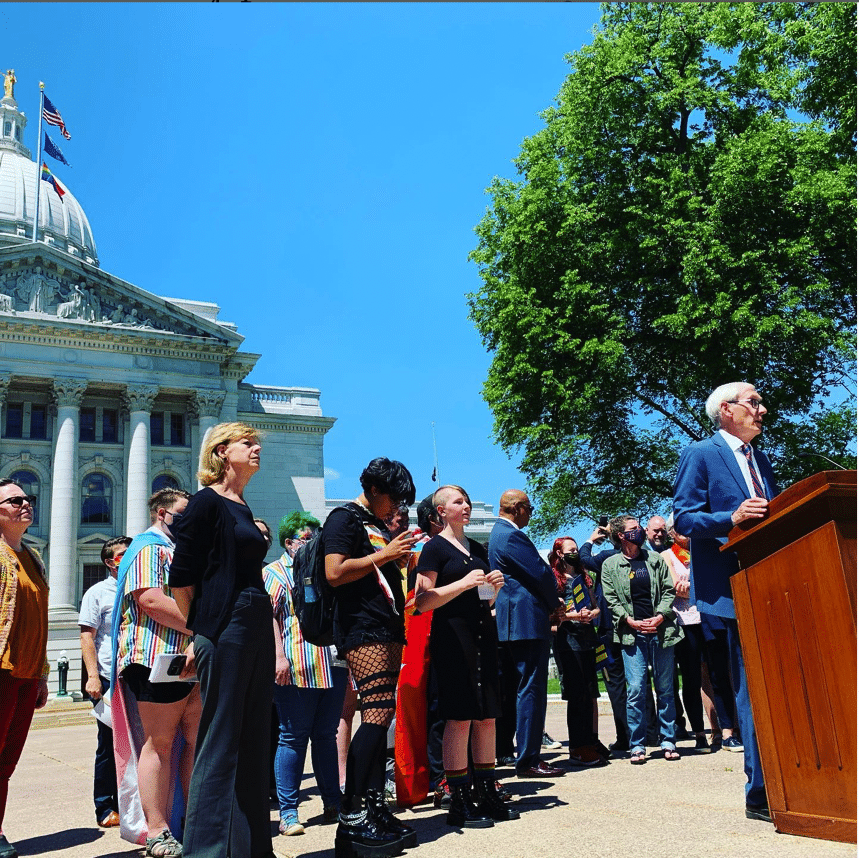
Reforming Wisconsin's Criminal Justice System
Pride started as a response to police brutality and the fights are intrinsically linked.
Queer people, and especially Black queer people, are disproportionately criminalized by our entire criminal legal system, in addition to laws specifically criminalizing queer people's existence, such as healthcare bans, education bans, sports bans, drag bans/employment discrimination proposals, HIV criminalization, gay panic defense laws, etc. The criminalization of those experiencing poverty, sex work, police brutality, school-to-prison pipeline, etc. disproportionately impact queer people.
Imagine a world where people aren’t endlessly punished for our mistakes but offered a way to address harms and heal. When we join together, we can make Wisconsin a place where people get the support we need to put and keep our lives on the best track, provide equal justice, and shape our future into all we imagine it can be.
Read More about the intersection of LGBTQ+ liberation and criminal justice reform Here!
Ending the Gay/Trans Panic Defense
The gay/trans panic defense is a legal strategy which seeks to use a victim’s identity to justify violent actions against them. These defenses inherently imply that violence against the LGBTQ+ community is acceptable under certain conditions and can be excused. They should be explicitly prohibited.
Gay/trans panic defenses function by using what they name as “gay or transgender panic” as a “reason to claim insanity or diminished capacity.” The defense alleges that the perpetrator did not know that the victim was LGBTQ+ , and upon the reveal, is so overcome by “gay/trans” panic that they were not in control of their actions when they assaulted the victim and therefore should receive a lesser sentence. This defense was debunked by the American Psychiatric Association in 1973.
Criminal defendants should not be allowed to appeal to prejudice in an attempt to shift blame to their victims. Neither should the identity of the victim ever justify committing a violent crime.
LGBTQ+ people experience violence in disproportionate numbers throughout childhood, adolescence, and adulthood. Any policies that implicitly condone violence against the LGBTQ+ community or devalue the lives of LGBTQ+ individuals only further fosters an environment of violence and need to be eliminated from our state laws.
Currently seventeen states plus Washington DC states across the country have prohibited the use of legal defenses claiming the victim’s sexual orientation and/or gender identity contributed to the defendant’s actions.
Wisconisn should be doing everything it can to improve safety for LGBTQ+ and transgender wisconsinites it is time that Wisconsin joins these states in prohibiting the gay/trans panic defense.
